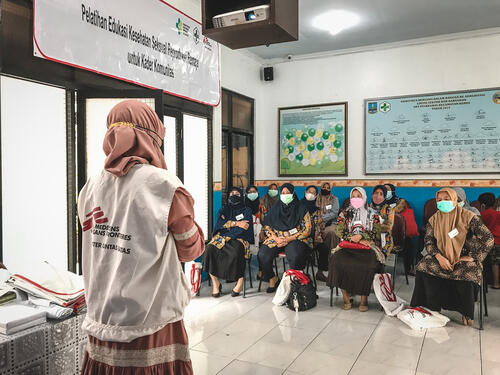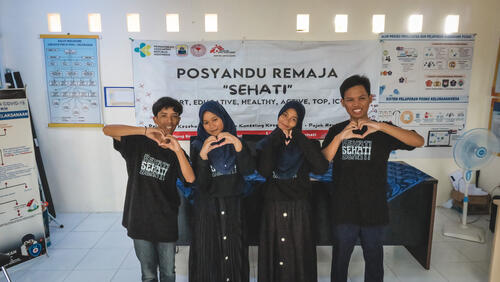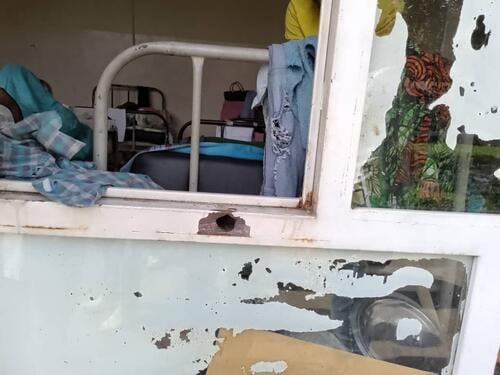After four years, the Médecins Sans Frontières (MSF) adolescent health project in Indonesia came to an end in December 2022. Running since 2018, it was set up to implement innovative approaches to adolescent health in selected areas of DKI Jakarta and Banten provinces.
The programme focused on building local communities' ties to health service providers, as well as strengthening the connections between health centres, and local public and private schools. The main goal was to continuously improve the quality of, and access for adolescents to, targeted health services, including health promotion and education sessions. As part of the project the team supported local health centre staff in running Adolescent Friendly Health Services (AFCS) and conducted capacity building through mentorship and training. As MSF leaves, it is the communities who will take over responsibility for running the activities.
“Despite having to adapt our adolescent health activities due to the 2018 tsunami and more recently the COVID-19 pandemic, we are proud of what the team has achieved, and are excited to see the community taking this over,” says Walter Lorenzi, MSF's Head of Mission in Indonesia. “There remains work to be done on adolescent health in Indonesia, but as MSF we have reached a point where we can turn our attention to other needs.”
Health systems are often designed to meet the needs of adults but are not always adequate to meet the health needs of adolescents, especially those belonging to vulnerable and marginalised groups. These needs can include sexual and reproductive health, HIV, addiction, mental health and non-communicable diseases.

MSF believes that providing quality health services for adolescents means involving them in a meaningful way, and this was done in Indonesia through a peer-based approach. For example, MSF supported the establishment of seven community youth corners in Banten all of which are now managed and operated by adolescent health volunteers with support from the community authorities. These youth corners are frequented by over 4,000 adolescents and offer such things as music classes, sports, painting and libraries. These venues are also used to connect the adolescents with health service providers.
“We have benefited from MSF’s intervention and for example the adolescents have become more confident speaking in front of a big forum,” says Siswidi Yatnila, the village head of Rangkasbitung Barat, in Banten province. “Even though MSF has finished its project, we will continue to run it with all respective parties such as the village midwives, the midwives from puskesmas (community health clinics), and other authorities.”
Siswidi also mentioned that the village have the commitment from the sub-district that it will continue to support the activities in the future.
Between 2018 and the end of 2022, MSF supported six community health clinics, including with referrals, providing logistical support in the form of minor rehabilitation work, and donating medication and other supplies. More than 2,240 adolescents benefited from counselling services, 1,271 adolescents were screened in the community and referred to clinics for further treatment, and over 720 health education sessions were conducted reaching almost 45,000 young people. Of those sessions, 62 per cent were led by MSF-supported health volunteers (cadres).
The vital element of such a project is that the young people themselves, as well as the communities that support them, are so intricately involved.
“There are many benefits to being involved with the MSF team, and I have certainly learned more,” says Rita Rahmawati, one of High School 1 Jawilan’s students. “We received counselling training and now I can do peer counselling. And the activities are always fun and exciting.”






